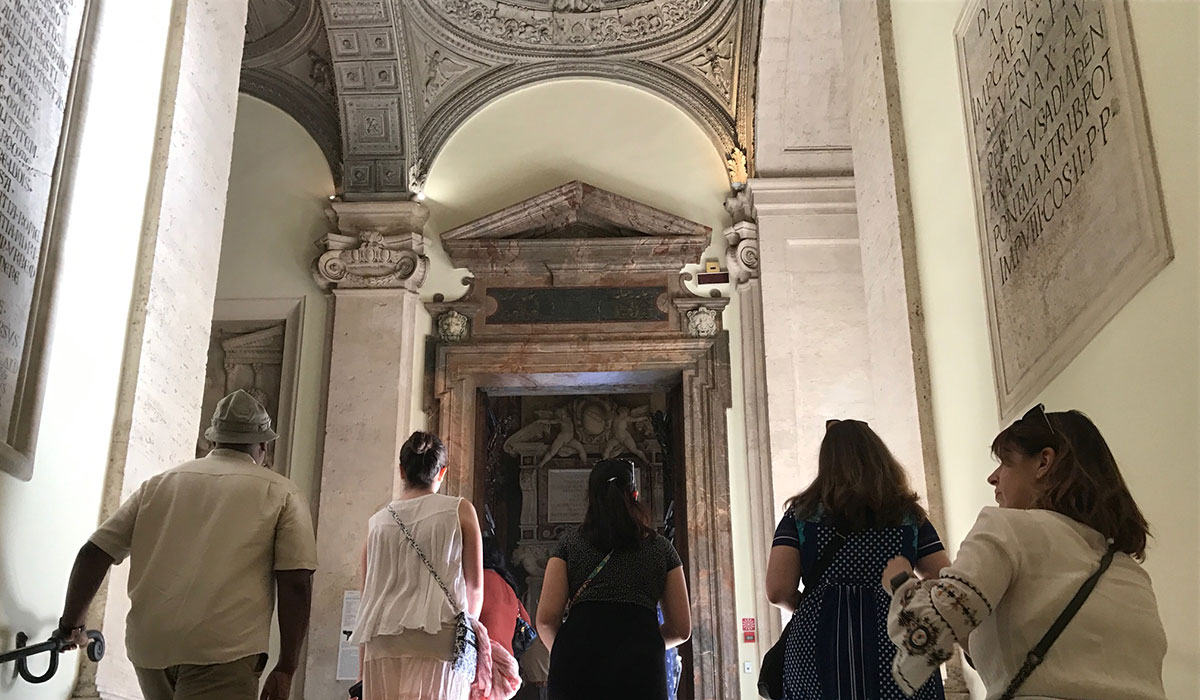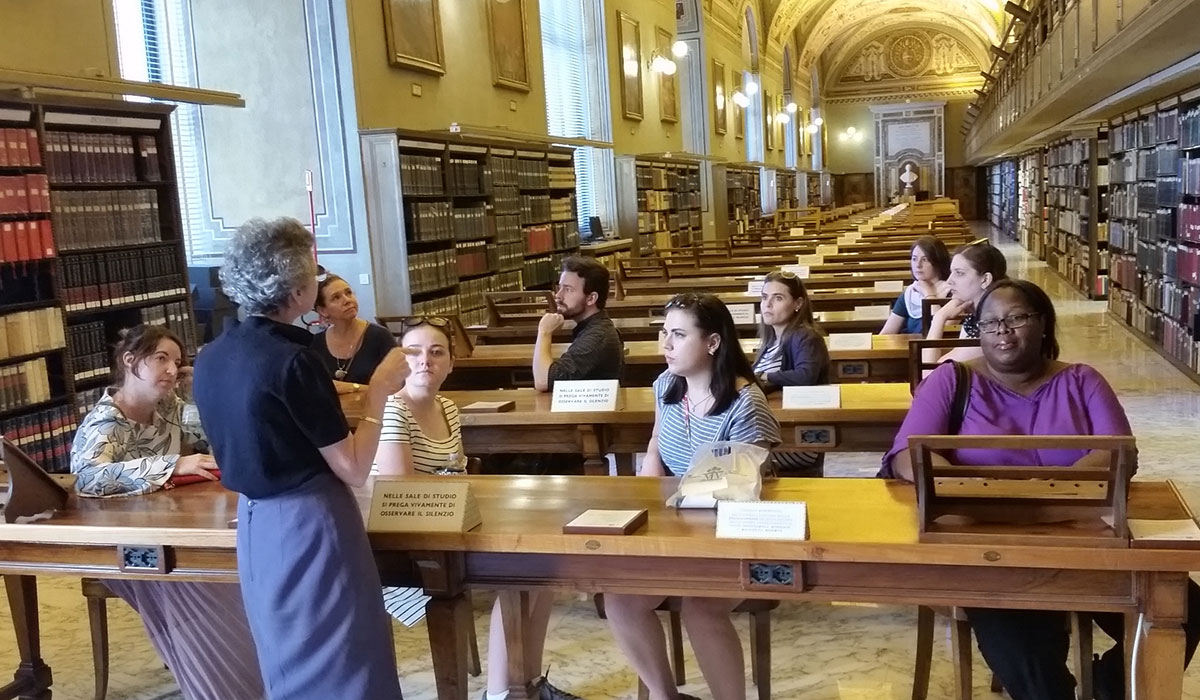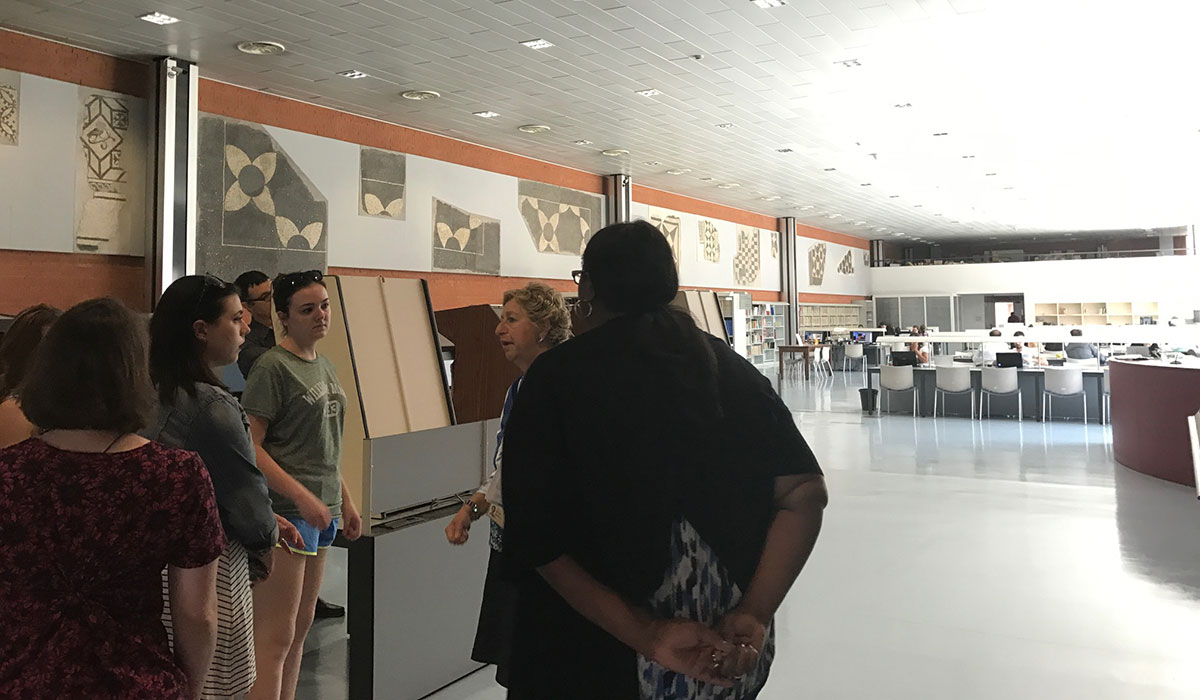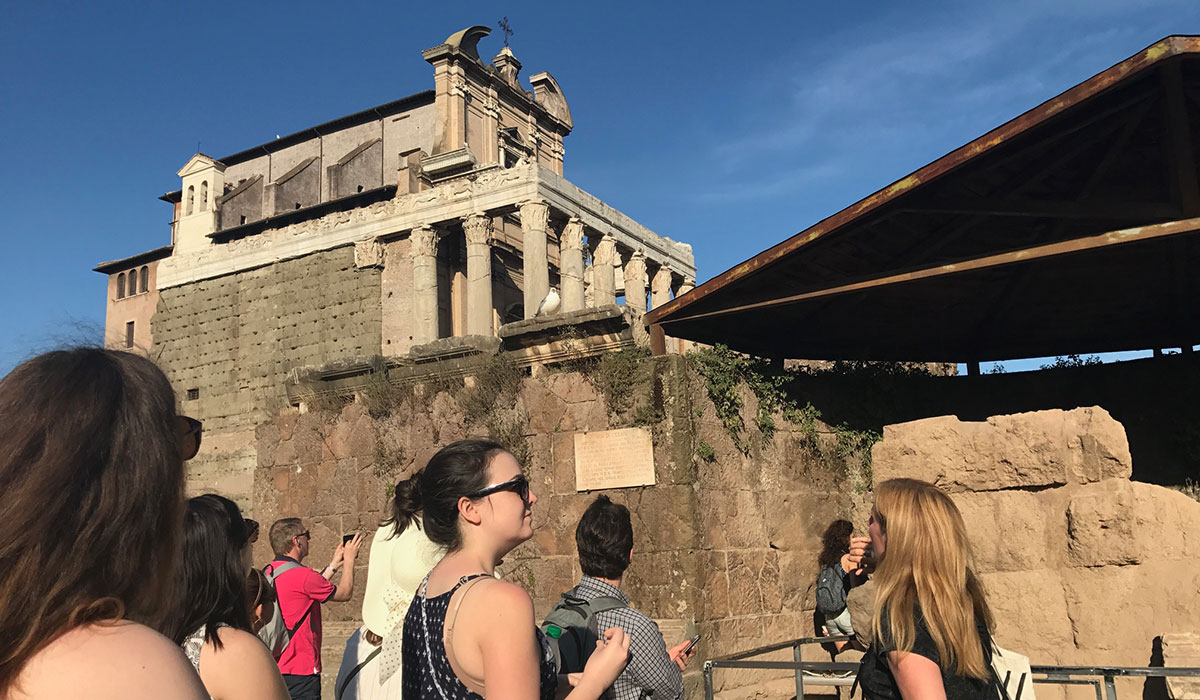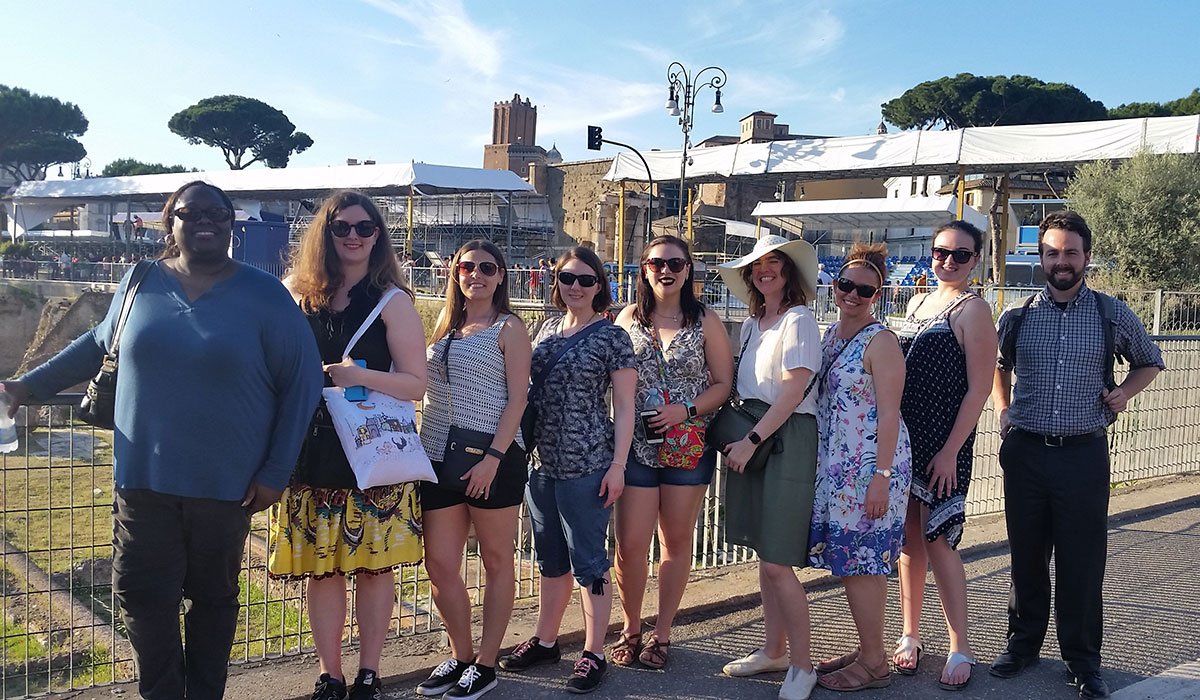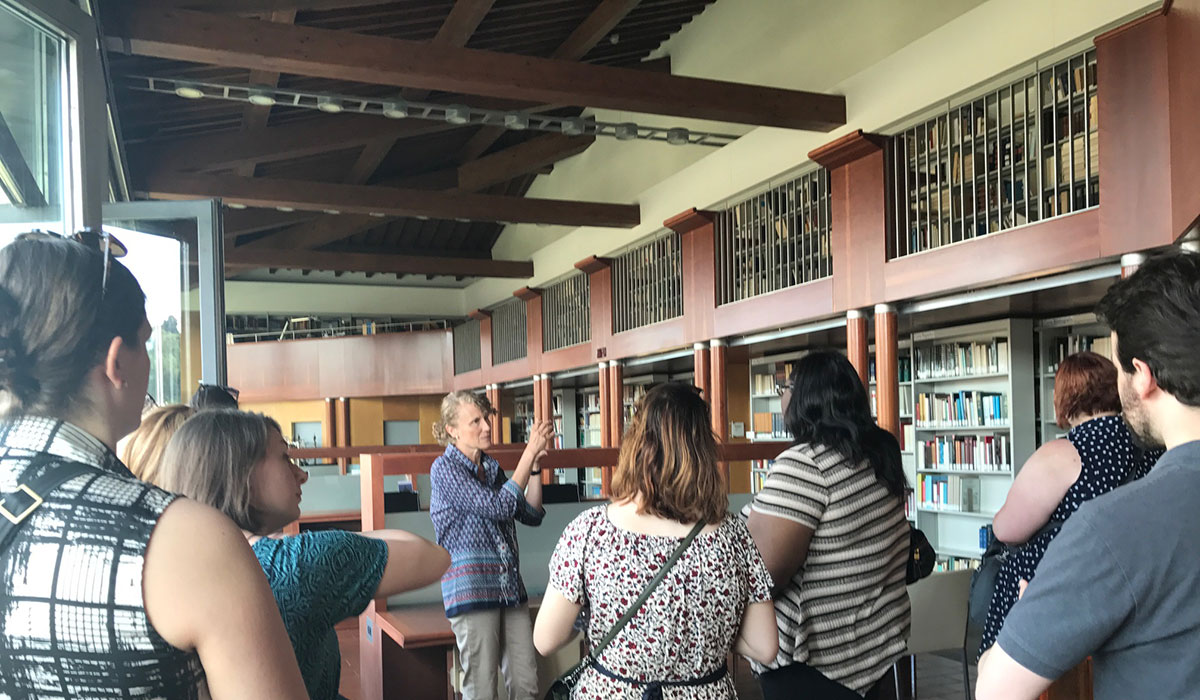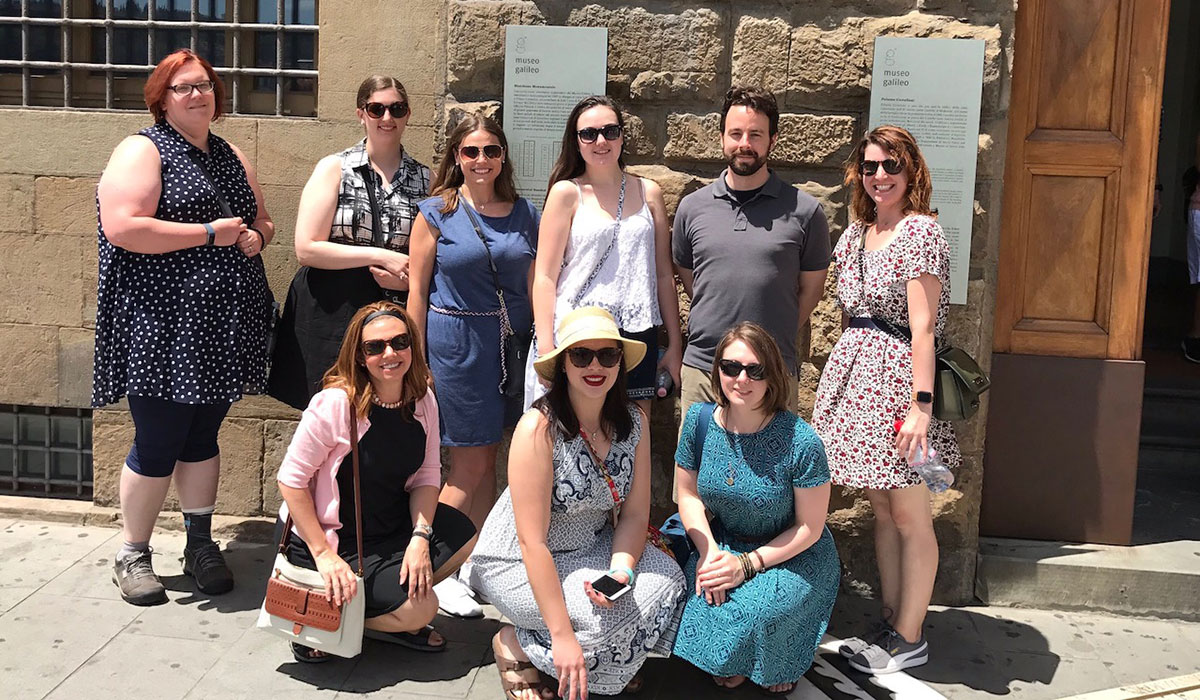
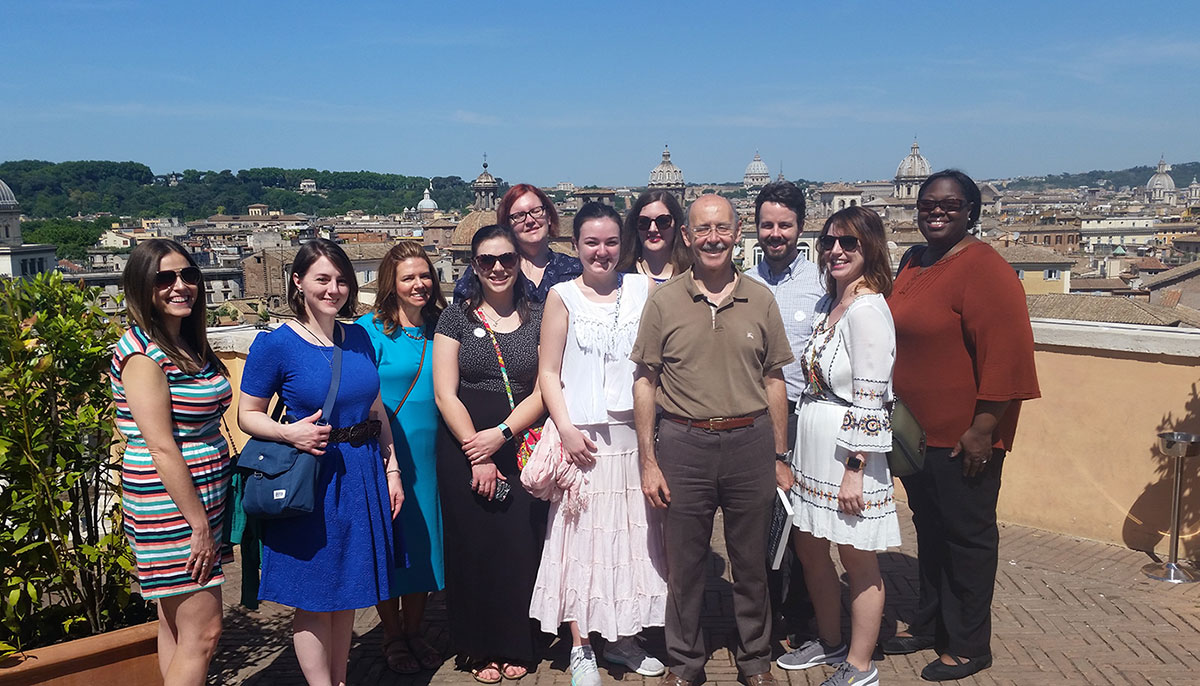
On a Tuesday afternoon in late May, a group of nine students was quietly whisked past tables full of researchers studying rare and valuable texts through magnifying glasses. They were led into a secure area rarely seen by visitors. As they walked through the rooms, they passed parchment volumes dating as far back as the eighth century and were surrounded by historical Catholic Church documents that featured the handwriting of popes, kings, and queens. They were deep inside the Vatican Secret Archives.
The visit to the archives was a rare opportunity for these students on their second full day in Italy. The students spent two weeks abroad for Visions of Italy, a graduate course offered by Catholic University’s Department of Information Sciences in partnership with CUAbroad.
The course, which is offered every other summer, was led by Renate Chancellor, associate professor of information sciences.
“I wanted to provide students with the opportunity that no other library and information science program in the country could offer — to visit and have a behind-the-scenes look at religious and cultural objects from the Vatican Library, the Vatican Archives, and other prominent libraries and archives in the cities of Rome and Florence,” Chancellor says.
Chancellor says she chose sites and guest speakers “who would provide students with opportunities to gain first-hand knowledge of the religious, social, economic, and political climate of Italy.”
The unique opportunity attracted not only students from the Department of Information Sciences, but also a doctoral student from the Department of Semitic and Egyptian Languages and Literatures, an undergraduate student, and four library and information science students from other colleges and universities.
Chancellor says she believes a variety of people are attracted to the class “because of the incredible opportunities afforded to students.”
Founded by a papal charter, Catholic University has a special tie to Rome and the Vatican. This connection enables the University to provide students access to locations like the Vatican Secret Archives and Vatican Library, places few other people ever get the chance to see.
Students in the course stayed at the University’s Rome Center in Trastevere, a short bus ride away from Vatican City and close to many of the other sites students visited during their time in Rome. For two days, students also explored Florence, with behind-the-scenes visits to places like the Uffizi Gallery and Medici Chapels.
Traveling in a small group enabled the students to develop a quick bond. Chancellor and the students often took time to discuss what they had learned and seen over leisurely lunches and dinners.
Alaina Furman, a library and information science student at Catholic University, was excited to immerse herself in the culture and history of Italy. By the end of the trip, she was able to communicate easily with locals in Italian.
“Through my concentration in Cultural Heritage Information Management, my intention is to focus particularly on archive management and special collections, the goal being to use both that knowledge and my history background in an occupation with a religious library, archive, or museum,” she says. “This class presented me with an opportunity to further that goal. Additionally, it spoke to my desire as a Catholic pilgrim to visit the Eternal City and, as a lover of history, to visit Florence, which was the heart of the Renaissance period.”
Furman’s favorite visits included a tour of St. Peter’s Basilica — led by Rome Center Director David Dawson Vasquez — and the Roman Forum, which featured a discussion with an American professor of antiquities, who vividly described life in ancient Rome as the sun started to set on the ruins of ancient temples, monuments, basilicas, and government buildings behind her.
“My strategy for designing the course was to create a cultural immersion experience considered essential to the development of 21st-century knowledge, skills, and abilities that are crucial if U.S. information professionals are to effectively serve diverse clientele,” says Chancellor. “It enabled students to benefit from this cross-cultural experience and enrich their own learning experiences.”
